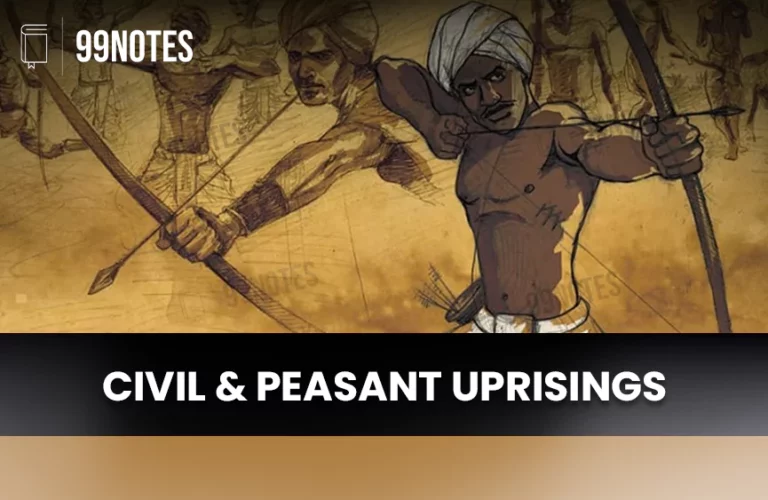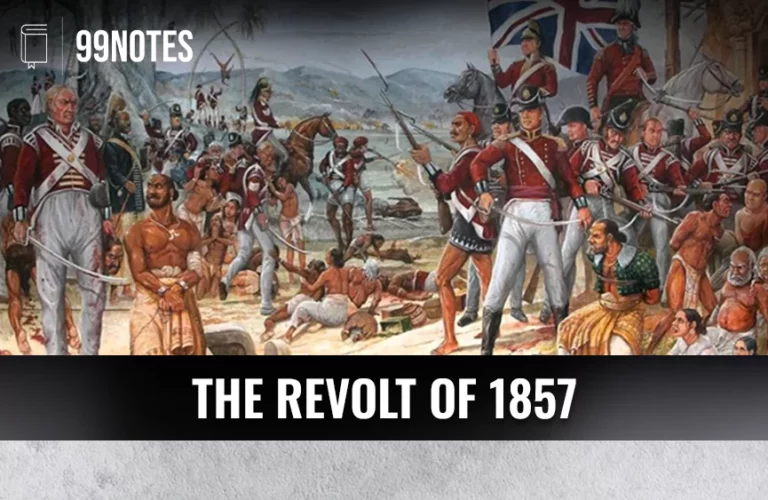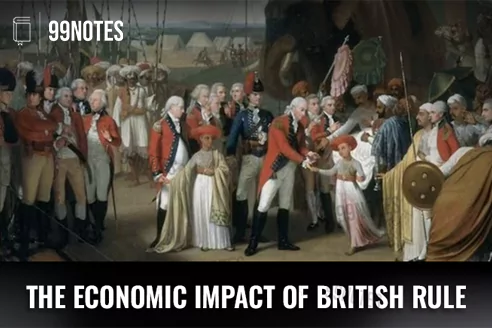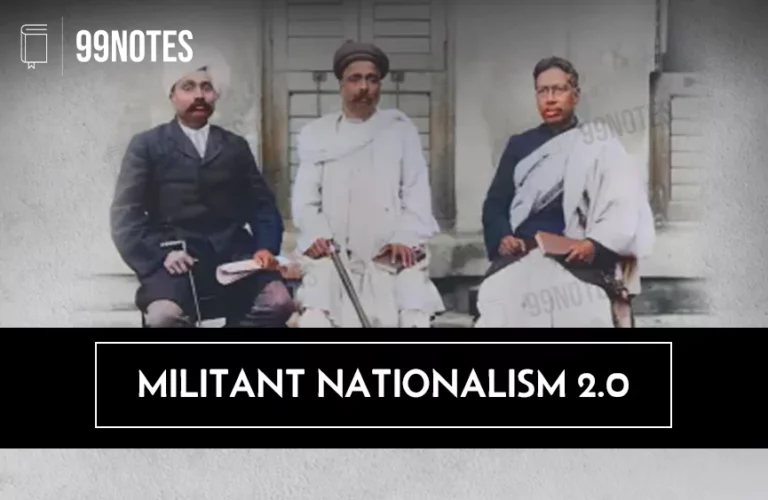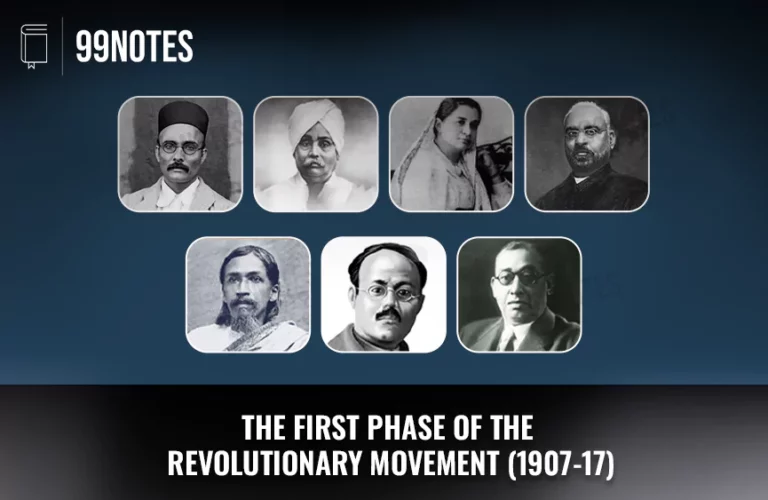Civil Disobedience Movement: Cause, Limitations, And Impact
Civil Disobedience Movements Civil Disobedience Movement, one of the most pivotal episodes in India’s struggle for independence from British rule, was launched under the leadership of Mahatma Gandhi in 1930. This non-violent movement aimed at defying British laws through Civil disobedience, marked a significant escalation from the earlier Non-Cooperation Movement, emphasizing not just refusal to…

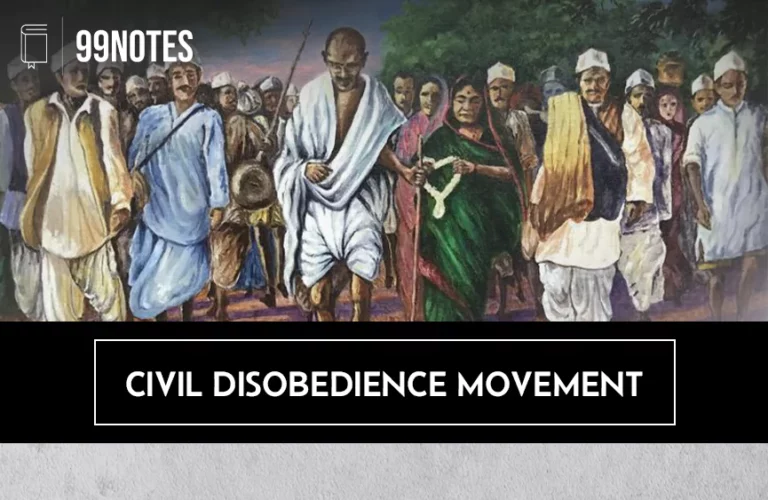
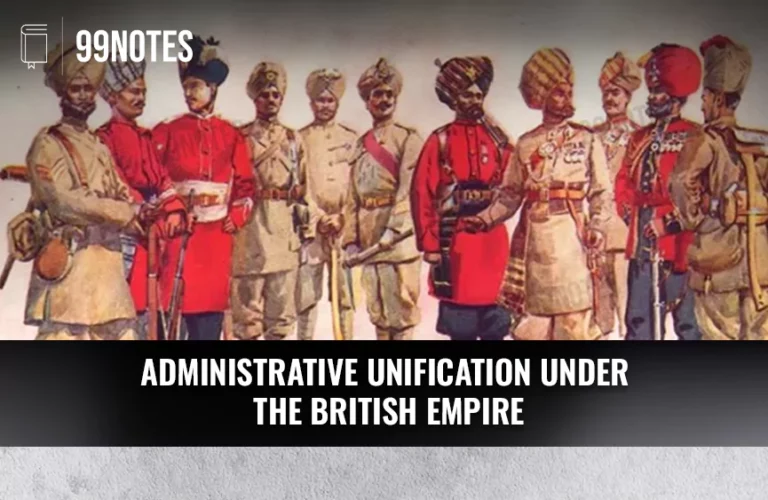
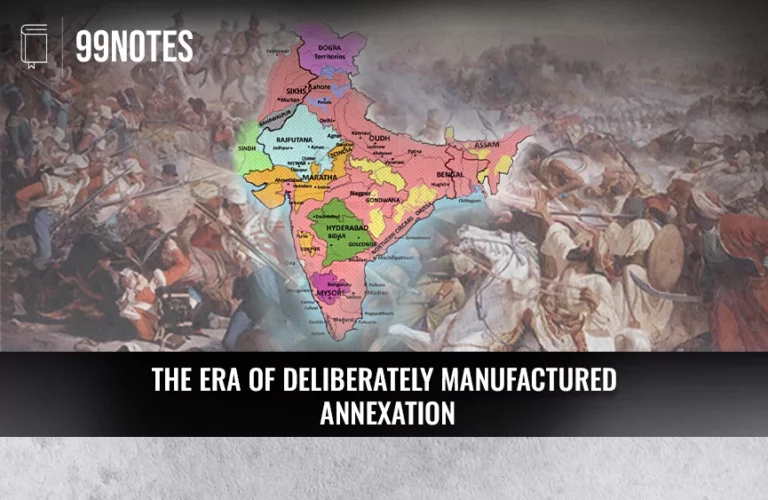
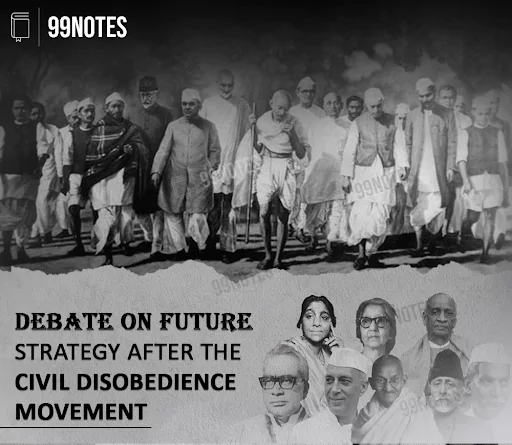
![Early Political Activities: 1858-1905 [Complete Notes For Upsc] | Updated February 1, 2026 Early Political Activities: 1858-1905 [Complete Notes For Upsc]](https://99notes.in/wp-content/uploads/2024/02/early-politics-featured-66698a6014484-768x500.webp)
